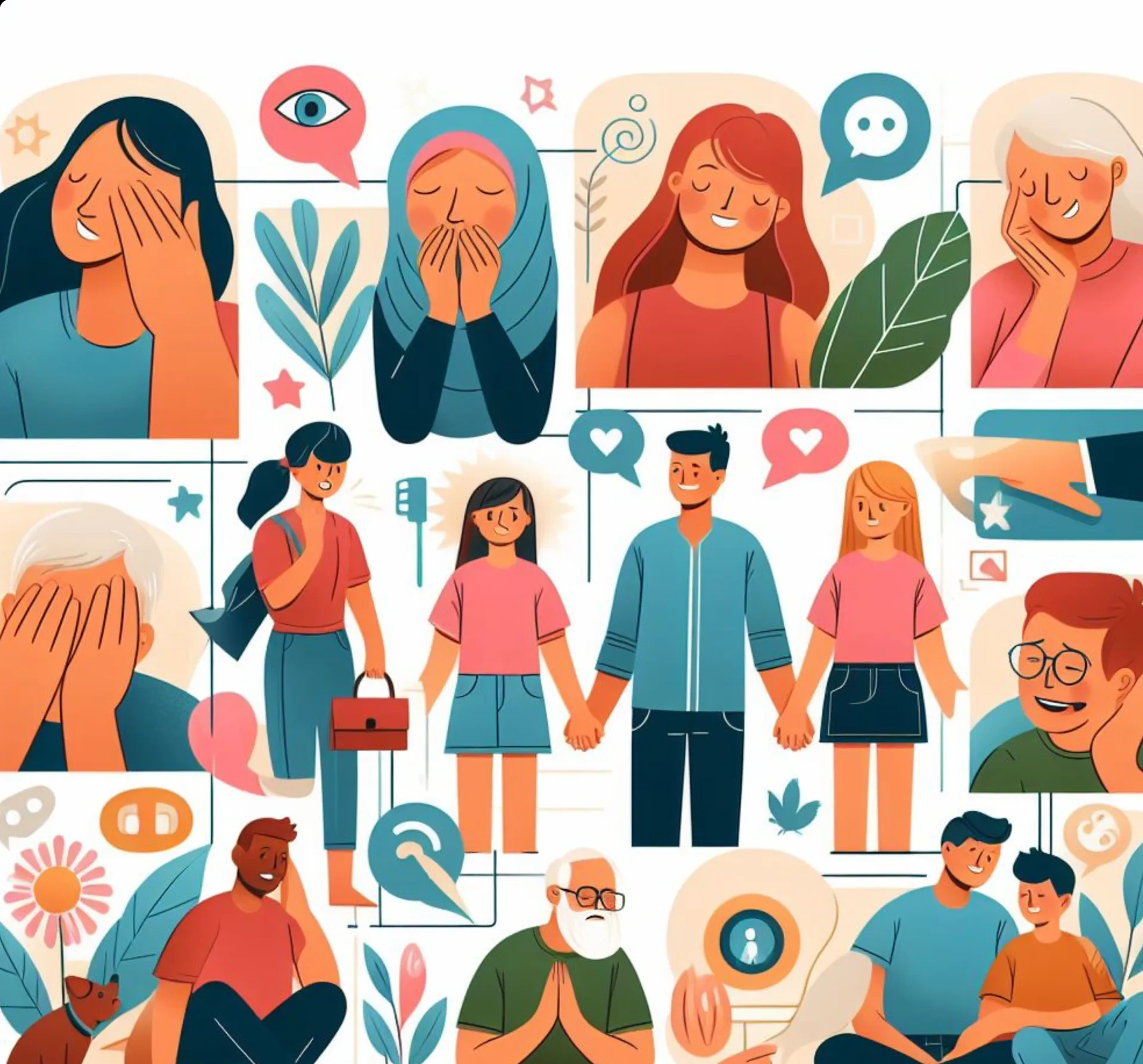Fear Kills Relationship Intimacy
Fear can paralyze relationships. One minute you're as happy as a beaver on a spring day and the next minute be finding excuses to leave the room.
In any given moment your response may seem appropriate, but if you were able to later discuss with the person why you reacted the way you did, you may realize there could have been a different way to handle your response that actually increased love and intimacy.
Let's be clear the goal in this article is more relationship intimacy.
- In this brief article we will first look at an early life biological dilemma that causes us pain and unnecessary suffering later in life.
- The root of why you need to understand and make friends with fear.
- Then we will learn about some secret cues that will help bring awareness to your experience so you can modify your otherwise “knee jerk” reactions on demand. (…as in not be a victim of your unconscious programming…)
- Finally, we will look at some alternative options to dramatically enhance your ability to navigate fear.
How Humans Get Developmentally Impaired for More Intimacy
It is important to know that our brains grow developmentally as our age increases.
Early on, between the womb experience and age 5, there is part of your brain that tells you to reach out when you need food, contact, or are scared and need comfort, etc.
It’s based on millions of years of evolution so it’s hard wired into you.
At this stage of development you respond to life in a very raw form… …unable to discern the different energies you are experiencing, except for ones that have an intensity to them such as “I’m hungry” or “..that loud noise is scary” or “change my dirty diaper.”
Between 18 months to 5 years another part of your brain comes on-line that gives you the ability to essentially date and time-stamp your experience. Critical because it's what gives you the ability to tell a story…
Before this time, when you have experiences, good or bad, the memories of the intense experiences get stored in your unconscious or what is called implicit memory, with NO date or time stamp.
Said another way, all the mental strategies you used to deal with them got stored in your unconscious so they are out of your awareness.
They just happen automatically out of your awareness. (hint: this is why its hard to believe why someone thinks a certain way - we don’t have their programming)
Guess what happens later in life when these memories get triggered?
You guessed it, you respond as if they were happening for the first time. (remember: those memories are not date coded or time stamped so your brain doesn’t discern if it happened already)
So what does this mean to you today? Well, when you analyze it you are literally responding like an infant rather than an adult. (unless of course you are practicing what Im sharing below!)
Technically… when you get triggered you are actually accessing neuro-clusters that got formed when you were tiny. that got imprinted into your memory system. (Yes, we have a memory system just like we have a digestive system, skeletal system, circulatory system etc)
When something similar triggers this memory you are not accessing other parts of your brain to rationalize it effectively.
In short, you are leaving out essential information to evaluate your situation accurately.
This is the million dollar answer to why couples attract a certain kind of person or why couples stay stuck in relationship intimacy killing patterns.
When we are tiny we have not yet developed complex rationalizing abilities, so our ability to sort out the experience effectively doesn't exist and a LOT of information is left out of your “infant-like” evaluation.
As adults, it is this phenomenon that causes us to have unconscious beliefs play out so fast we don’t question our reaction.
The good news is there are many ways to identify these knee-jerk responses and change them to more consistently move towards more daily relationship intimacy.
8 Physical Responses That Guide You To More Relationship Intimacy
First, let’s look at 8 physical responses that can occur when you are scared:
- Tightness in stomach and chest
- Nausea or internal quivering, especially down the midline of chest and stomach
- Damp or sweaty palms
- Dryness in mouth
- Narrow focus in eyes, tunnel vision
- Elevated heart rate
- Rapid thinking
- An impulse to leave, argue, or fight back
3 Common Fear Based Habits That Diminish Your Relationship Intimacy
And as a bonus lets look at a few fear based behaviors that will clue you in as well:
- Blame (accusing your partner, showing contempt, threats)
- Victim language (“you’re always blaming me, why do you treat me that way…”)
- Rescuing others emotionally in order to feel better ourselves. (I’ll clean up the house so you’ll love me more)
The question then becomes what do we do to interrupt these unconscious fear based responses?
Solutions For Having More Relationship Intimacy
The starting point is to slow down and sense where your breath is and recognize physical sensations. This will cultivate your ability to become more aware.
Stay with me here…
Awareness, curiosity and reflection are the keys.
I've noticed over the years of practicing this kind of self-awareness that oftentimes I will feel a sensation before I have the knee-jerk reaction, which makes it much easier to respond consciously to any situation because I have an obvious clue to remind me fear is active.
What are some options to interrupting your knee-jerk reactions to create a different outcome in the moment?
Here are 5 ways to adjust your fear response:
- Pause and notice your physical sensations and remain curious (Imagine your tracking an animal in the woods. Do the same thing with your sensations.)
- Continue breathing and remain open (Notice if your mind wants to distract you, just observe your full experience, sensations, emotions, thoughts etc. and don't do anything…just feel.)
- Repeat back what you heard ("I think I'm hearing you say….is that accurate?")
- Tell the person what you think it means and ask if your assessment is accurate. ("I think it means this….Is that true?")
- Make a new choice (Make a request for what you are needing or wanting.)
By cultivating this response sequence you will begin to pick up more information in your environment and be able to interrupt communication patterns that have perhaps derailed you in the past.
Let’s Summarize What We Learned Today About Increasing Relationship Intimacy
- Our goal is to have more daily relationship intimacy
- Use the 8 fear based clues to have more awareness that fear is operating in your situation
- Bring awareness to the 3 most common fear based behaviors (victim, blamer, rescuer) and interrupt them by asking more questions and naming out loud you are fearful
- Use the 5 NEW responses to re-program and update your communication “neuro-clusters” that got programmed in you long ago!
In watching myself and clients develop this practice over the past 17 years, I see their confidence grow, and they regularly report having more relationship intimacy and more acceptance of the way people are.
I think our planet could use a little more of that!
Now take a moment and ask yourself if you got any value in this article. If so, please share this article with your friends to spread the word.
Each little contribution makes the world a little brighter. My goal is to help a million people improve their relationships in the next few years and I can not do that without you spreading the word. So thanks for that! :) and...
Many blessings on your life journey.

